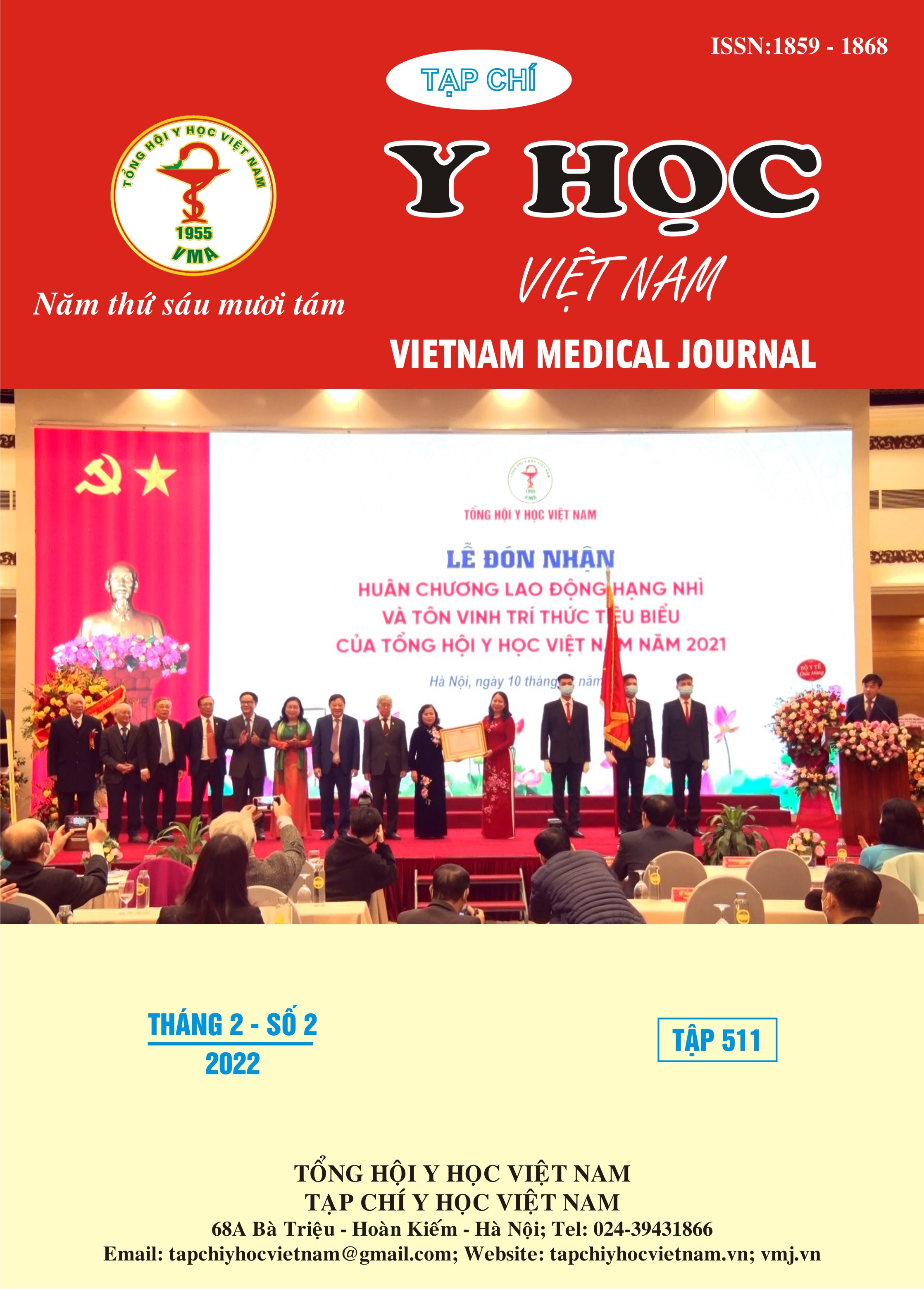EVALUATING THE CLINICAL CHARACTERISTICS OF NASAL SOFT TISSUE DEFECTS WHICH WERE TREATED BY FOREHEAD FLAPS
Main Article Content
Abstract
Objective: To access the clinical characteristics of nasal soft tissue defects which were treated by forehead flaps. Subjects and methods: 48 patients with nasal soft tissue defects were hospitalized in the Departments of Maxillofacial and Plastic Surgery (in both two Military hospitals 108 and 103) within 2014-2020. Results: of these patients (54.20% male), the most common age group was > 55 y.o (50%). And almost defects were the consequent of malignant maxillectomy (58.3%), and at nasal alar (54,2%). Large defects (≥ 2cm2) were met in 81,2% patients, and full-thickness nasal defects were met in 25 of total 48 patients. Most patients (32/48,66.7%) were injured at one anatomical nasal unit and cheek area defects were the most combine injuries. Conclusions: Cause of nasal soft tissue defects often followed with malignant maxillectomy and the defect was large and deep.
Article Details
Keywords
Nasal soft tissue defect
References
2. P. Konofaos, S. Alvarez, J. E. McKinnie. et al. (2015), "Nasal Reconstruction: A Simplified Approach Based on 419 Operated Cases". Aesthetic Plast Surg, 39(1), pp. 91-9.
3. Nguyễn Huệ Chi,Nguyễn Huy Thọ (2004). Đánh giá kết quả điều trị khuyết cánh mũi,trụ vách mũi bằng ghép tự do mảnh ghép phức hợp sụn vành tai. Đại Học Y Hà Nội.
4. Bạch Minh Tiến (2002). Đánh giá kết quả sử dụng vạt trán và vạt rãnh mũi má trong điều trị tổn khuyết phần mềm vùng mũi. Luận văn Thạc sỹ Y học, Đại học Y Hà Nội.
5. J. S. Yong, J. J. Christophel,S. S. Park (2014), "Repair of intermediate-size nasal defects: a working algorithm". JAMA Otolaryngol Head Neck Surg, 140(11), pp. 1027-33.
6. Y. Bhatt, K. Vyas, D. Nakade. et al. (2006), "Reconstruction of nasal defects our three years experience". Indian J Otolaryngol Head Neck Surg, 58(1), pp. 51-6.


